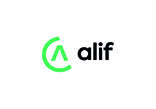What are the biggest hurdles to greater financial stability, efficiency and financial inclusion in Tajikistan and the wider central Asia region?
Khofiz Shakhidi: Achieving greater digitalisation in all aspects of the lives of people in Central Asia will eventually bring about a more stable and efficient financial system that will work for everyone. Thankfully, the cliche hurdles of internet access and financial literacy of some Central Asian states are being effectively addressed by governments and international organisations. Hence, Alif Bank in Tajikistan and its sister companies in Uzbekistan are increasingly benefiting from those developments.
However, we still have a long way to go to instil trust for digital or e-transactions for rural as well as urban groups as cash remains the dominant medium of exchange. Banks are largely associated as cash operators and loan givers with very limited operational mandates. Alif Bank is set to redress this misconception of banking and what it can actually do for the banked as well as unbanked.
How is Alif Bank addressing these challenges, particularly with regard to the unbanked?
Abdullo Kurbanov: We understand the importance of establishing effective communication with regulators and provide continuous feedback to the central bank about market developments and demands. The good news is that the National Bank of Tajikistan (NBT) is very supportive of innovation and digitalisation in the banking system in Tajikistan. We would have never leapfrogged in our fintech efforts if the regulator had been unreasonably conservative vis-a-vis digitalisation. For example, the NBT allowed banks to run identification remotely for e-wallets without having new clients to come to a physical office which means greater financial inclusion for the whole population. Therefore, we are able to onboard new clients remotely using smartphones and internet connections, albeit this does not include bank account opening, as of now. This development was especially important due to the Covid-19 pandemic that forced banks to revise policies on physical interaction with clients.
Why is the bank adopting a banking ecosystem model and what does that look like?
Khofiz Shakhidi: Alif began as a small microcredit organisation in 2014 with only two full-time and two part-time employees. This period of time, up until today, has allowed us to build in-house human and IT capabilities against the backdrop of a complete overhaul of the
banking system in Tajikistan. Having said that, the leadership of the bank experienced first hand all the operational inefficiencies and nuances which made decision making and strategy building more informed and guided. We clearly see the need to enable the banking system to transform the economy into a digital powerhouse that will spearhead economic growth and development through greater transparency and efficiency. At this stage, Alif Bank has taken the role to create a financial ecosystem for our clients in both the private and the public sectors.
Also, we realised that one of the hurdles to effectively serve other markets beyond Tajikistan would mean pursuing a banking license in countries of interest. However, given over regulation and over protection of the banking sector in some developing countries, we are forced to act and think as a fintech company which uses existing banking infrastructure and solves various problems without being overly constrained by regulators.
How is Alif Bank engaging with the fintech community?
Abdullo Kurbanov: We are a fintech company with a banking license. Speaking of engagement with the fintech community, we are partnering with numerous fintech companies across the region to facilitate international transfers for our target groups like migrants and diasporas. For example, we signed a strategic partnership with VISA to accelerate financial inclusion across the country and drive growth in digital/F2F payments across Alif’s financial ecosystem and this development strengthens our position as a fintech provider in the region.
Together with VISA we plan to develop innovative and secure banking solutions, implement joint marketing initiatives to drive awareness, and enable greater financial inclusion through “Pay in-app”, “Pay online”, “Pay Anywhere” and other user-centric services. We are committed to work very hard to transform the payment experience, serve the financially excluded majority, and contribute to building our region’s digital future.
For now, our journey as a fintech company stretches across Tajikistan and Uzbekistan only with a soft launch in Russia to be finalised in 2021.

How is the bank reimagining its customer journey for the digital age?
Khofiz Shakhidi: From the very outset, Alif Bank has been known for its continued efforts to digitalise its operations. We were fortunate to come to the market with a digital mindset rather than having to inherit a heavy banking infrastructure that stifles efforts to move towards the digital age. We never had to reimagine, rather simply imagine how the future looks like and where we see ourselves in that future. The age of super apps is around the corner for our region and we shall create a trusted multi-channel mobile infrastructure to be accessed and used across multiple devices. We want our clients and users to have a powerful tool to pay, transfer, save and even earn on the go. The smartphone today is your oyster and we want to bring the whole world to the smartphones of our clients/users.
What will it take to be a successful regional player in future?
Abdullo Kurbanov: It is all about getting the basics right. Our region is a fertile ground for innovation and talent development. Alif has already embarked on a path to train a new generation of leaders in finance, IT and management. For example, Alif Academy was established to develop IT skills in-house, and it is funded by a number of stakeholders, including Alif Bank. To us, the basics are a transparent and effective business model that is built on noble values and technology. Our people drive innovation and they keep finding better and more efficient ways to serve our target audience. By 2024, our team of top IT engineers is projected to increase ten-fold and our managers shall be running projects in markets of over one billion of total population.














